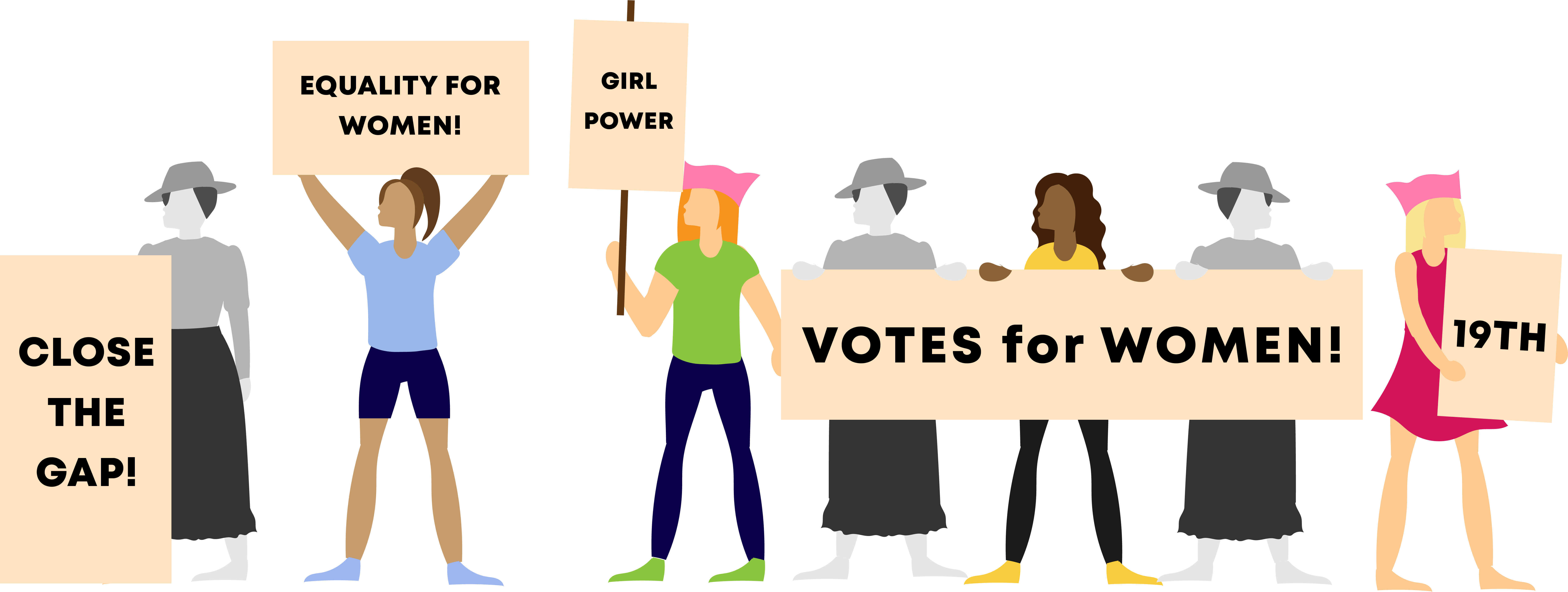
A century ago, Susan B. Anthony reminded the country that “we the people” meant ALL the people, not just half. She and other suffragettes were devoted to the cause of the 19th Amendment to the U.S. Constitution, passed in 1920, giving women the right to vote.
Not that the 19th Amendment meant automatic equality. Some of our staff point out that it was four-plus decades later before American women of color in many states could vote without racist barriers. But Carrie Chapman Catt, who founded the League of Women Voters in 1920, that same year of the 19th Amendment, noted that “the vote is the emblem of your equality, women of America.”
Now the year of the 100th anniversary, the ChapBook students decided to create their staff page by offering their own thoughts about the 19th Amendment, though imperfect, as a major benchmark in this country’s history.
MARI LUNDIN
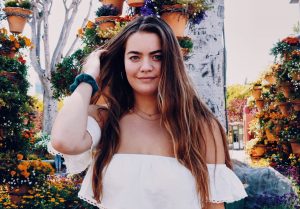
I didn’t vote in the 2016 election. Not only did I let myself down, but I also let down the women who fought for the right we now obtain 100 years ago.
In the end, we wound up with a president who says things such as: “I don’t even wait. And when you’re a star, they let you do it, you can do anything… grab them by the pussy.” That’s the Donald Trump we’ve come to know.
The 19th amendment was a huge milestone in the feminist movement, but we still have far to go. This requires women to not overlook their single vote, as small as it may seem. We can use this power to gain more than the right to a ballot: To earn respect and equality.
The 39 words added to the constitution in 1920 was a great start to empowering women.
But now, we must move past text and ballots. Using our voices, we will make not only the women who fought for us 100 years ago proud but help build a country that listens to our votes.
And I will vote in the 2020 election.
KARLEY WILSON
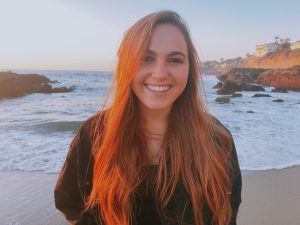
I look at the eleven women working on this magazine beside me, and I see passion, drive, brilliance, and confidence. We are here because the women 100 years ago knew they deserved more, and they began the fight.
We are now in our fourth wave of feminism, proving every day that ALL women are capable of anything, and we deserve to be treated and seen as equal. Today, I know that I am more than just an object, and I am proud to be a woman. I will not let any man walk on me. I have worth, brains, goals, and the right to stand for them.
This fight is about consistency. We remain consistent in demanding more. We are not a stereotype or a statistic. We are not overly emotional and less than. I am writing this because I am proud of where we’ve come.
And I know that every woman on this planet holds the same qualities as the twelve of us on this team. We will continue to grow even stronger than the women before us.
BROOKE LUTZ
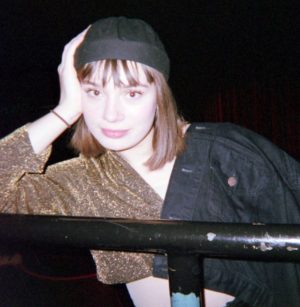
To me, to be a woman is to act in accordance with the authentic self, not denying or diminishing any aspect of our truest and most congruent state of being. As a woman in 2020, the depth of resilience and perseverance demonstrated unwaveringly by the leaders of the women’s suffrage movement cannot be completely grasped without first-hand experience of the climate in which they fought.
But to those leaders, many of whom did not live to reap the benefits they earned, we owe the first concrete stepping stone to a very long and ongoing path to equality. And to women in generations to come, we owe a great deal of mileage added to the pathway that has been forged for over 100 years by women who refused to quiet their authenticity,
To women of the past and women of the future, women of the present deserve the existence of their truest and most aligned self.
KELLY ITATANI
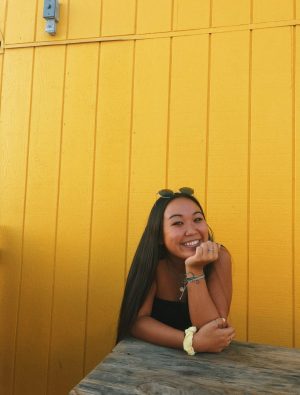
I lived in a bubble for 18 years. A bubble that only extended around the perimeter of the old-fashioned dairy town I grew up in. None of the teachers at my tiny Christian high school exposed us to any political or social issues unless it related to religion.
The boys at my high school were always put first. Boy’s sports teams were gifted Nike apparel while girls were given Puma. There was an unspoken hierarchy because my high school was stuck in the ’50s. However, it wasn’t until college that I was able to look back on my high school experience and realize that.
Now, I’ve learned what it means to be socially aware of what’s going on around me. I know how crucial it is for women to vocalize and fight for equality.
ALISON WU
Most people recognize the 19th amendment that granted women the right to vote. But the way things turned out, a lot of women in this country still couldn’t vote.
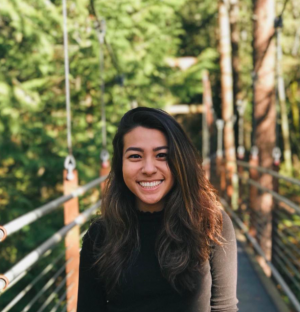
Too many states set up barriers that made voting difficult for people of color such as Native Americans, African Americans, and Asian Americans. It wasn’t until the 1965 Voting Rights Act — another 45 years later — that those roadblocks were all lifted.
I am half Asian, so this hits home. The fact that it not only took more than a century for women to gain the right to vote, but it took Asian Americans decades longer because of racism, is incredibly unsettling. Women regardless of ethnic makeup should have gotten that right the exact same time any man got it. In the end, the progress made over the years isn’t something to shy away about.
It’s a benchmark, like marking inches on the wall of a growth chart. These big and small victories keep me hopeful for even more growth in the years to come.
BREEANA GREENBERG
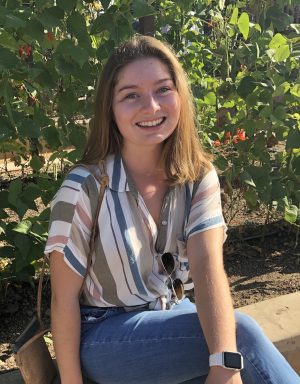
Nine years after English women gained the right to vote, Virginia Woolf concluded in her essay A Room of One’s Own, “When you reflect upon these immense privileges and the length of time during which they have been enjoyed … you will agree that the excuse of lack of opportunity, training, encouragement, leisure, and money no longer holds good.”
This speech, delivered at two women’s colleges, was aimed to inspire her audience.
And yet today, a century after American women gained suffrage, the lack of female representation in leadership positions is discouraging. Women make up a record 23.7% of congress and 22.0% of mayoral positions while making up 50.8% of the U.S. population.
There has yet to be a woman president. So if it isn’t “lack of opportunity, training, encouragement, leisure, and money” what is it?
LEXI FREUND

June 26, 2015. I was on a beach in Barcelona when I heard that the United States Supreme Court legalized gay marriage in every state. I was 6,000 miles away, but I had never felt so connected to my country.
My sister is part of the LGBTQ+ community. She’s one of the strongest people I know. She’s one of the most loving people I know. And her right to share and receive that love became recognized on a legal level.
I was only 15 at the time. I hadn’t gotten the chance to vote in the presidential election yet, but at that moment, I was so proud of everyone who had voted for the man that nominated those justices for the Court. It’s only five years later and things have changed so drastically.
Because of Donald Trump. I don’t have the same faith in the man in charge. I don’t have the same faith in some of our justices.
What I do have faith in is my right to vote. I’m 20 now and about to vote in a major election for my first time. I am going to vote for my sister. I am going to vote for my mom. I am going to vote for myself. Now, and forever, I will vote for the people who will protect the right for anyone male, female, straight, gay, bisexual, transgender, queer, and more, to love freely.
OLIVIA LUJAN
Whenever I think of the 19th Amendment, I immediately think of the women who put themselves on the line to fight for equality and justice. The Women’s Suffrage Movement is a significant milestone in American history, for it shaped the current American political and economical system.
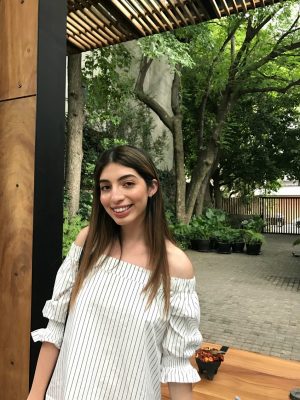
The women who fought in this movement were without a doubt fearless and strong, as they constantly embraced their bravery to secure a better future for women.
Yet despite the endless hard work these women put into American politics, I will never relate to them or understand them.
Yes, what these women fought for was courageous and bold, but they did not fight for women like me. They did not fight for Mexican American women like me.
They did not fight for African American women, Native American women, or Asian American
women. So, I cannot help but think, if I was alive during the 1900s, would these women fight for my rights, too?
Women of color were allowed to exercise their right to vote on August 6, 1965 – 45 years later following the Women’s Suffrage Movement. My Mexican-American great grandmother, who was born and raised in the United States, was finally able to vote when she was 56 years old once the Voting Act Right of 1965 was passed.
Although I only knew my great grandmother for five years, the stories I heard about her growing up depicted her as a very strong woman. My great grandmother felt very privileged to exercise her right to vote, having to wait until she was 56 years old to be able to do so.
While the 19th amendment carved the path for women’s rights, it certainly took a lot more than that to realize that not just white women, but all women should have the right to vote.
ABBIE DE MUTH
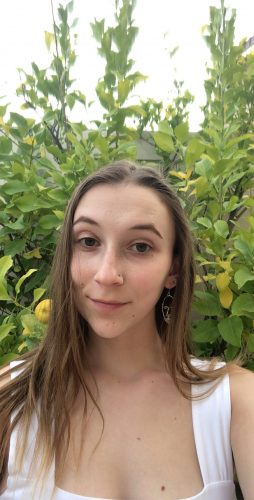
Just 15. My grandmother was 15 when she packed a small suitcase and left Germany in 1952. As tanks rolled down her neighborhood streets, World War II encompassed my grandmother’s childhood. During the war, my grandmother was taught that if she needed to escape or was to be harmed, to run to the American soldiers for help, not the Russian and German soldiers. To my grandmother, America was always a safe haven. So in 1952, she immigrated to the United States with her mother and brother.
My grandmother did everything she could to assimilate into American culture. She was required to attend an English preparatory school before she was permitted to attend public high school since she only spoke German. Nicknamed “the German Sniper” by classmates and teachers, my grandmother intentionally lost her German accent to fit in.
I never had the opportunity to meet my grandmother, but I do have the opportunity to utilize the freedoms that my grandmother sought after in the United States when she left Germany in 1952.
My grandmother voted in every election and valued the importance of the First Amendment. Although I never met her, I know she would be proud of me for utilizing the freedoms she fought hard for my family to experience, including voting in my first presidential election and becoming a journalist to maintain the freedom of the press.
SAMANTHA DONAGHEY
Public policy and civic engagement have held a strong presence in my life since I was 14. When I was just a freshman in high school I found myself very in tune with what was going on in the world and in my community. Therefore, I ended up joining a state-wide program in California called Youth and Government.
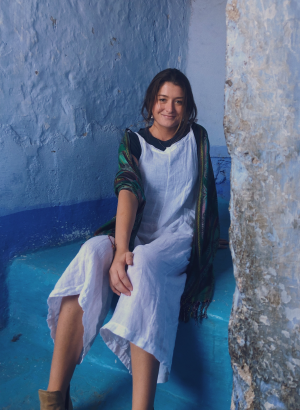
In my time spent with this program over the course of my four years of high school, I became deeply invested in politics and non-profit work. I held multiple leadership positions within the program, sat on the Board of Directors as a student representative, and worked for a political campaign in Sacramento.
Seeing the number of people my age, in my generation, who were as passionate as I am about politics, policy, and law only furthered my appreciation for the system we have here in The United States and the rights that are mine to actively participate in our democracy.
My parents have always pushed me to develop my own opinions and to have experiences that teach me empathy, compassion, and knowledge in every way possible. Being surrounded by so many intelligent women throughout my life, participating in all-female mentor groups, and watching my female role models make a substantial change in the world makes me continuously proud to have the rights I do now. Because of female leaders, we have the right to vote, the right to participate in civic engagement, and the ability to consistently better the world we live in.
CARLY ROSS
My mother grew up in a home in which both her parents paid close attention to the government, and exercised their right to vote continuously, especially her mother. My mother hoped to follow suit but began to resemble the defiant teenager years in which she hopes to be the independent thinker, the one living outside the box.
When she began to age and her teenage defiance subdued, she remained unregistered to vote.
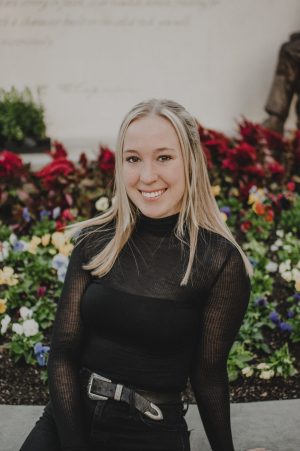
When dissecting her reasons for remaining unregistered, she had feelings of her vote being inadequate. Inadequate in the sense that her specific vote wouldn’t make a change or share of any importance to the overall government.
This rabbit hole is easy to find oneself in, feeling that your small addition is meaningless in the world. Despite the rabbit hole that consumed her, she found purpose in voting much later in life.
Two years ago, at age 55, she registered to vote and began to participate in her right that was granted 98 years prior. She eliminated the bystander effect that dictated her actions and realized that her voice must be heard regardless of her presumed significance.
“You have to have your say in whatever way you can find it,” Pamela Anne said.
She hopes that I can express my rights earlier than she did in order to have a say, even if it feels of the smallest scale. She hopes that women can express their right without degrading their overall influence given that countless suffragettes gave their lives in order for our freedom to still be intact 100 years later.
This anniversary marks the first push that got the gears turning, the change didn’t happen overnight, but with the foundational rights granted by the 19th Amendment, female voices are increasingly being heard throughout the United States.
CIENNA ROGET
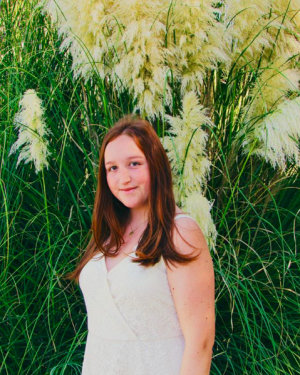
As a female journalist, the 19th Amendment holds much more meaning than granting women the right to vote. The 19th Amendment was a significant movement towards equality for women in all aspects of life. Similar to how journalism empowers me with the power of knowledge and storytelling, the 19th Amendment granted women the power of a voice and greater control over their lives.
The 19th Amendment was a monumental step towards gender equality, that we still have not reached today. Without the efforts of pioneers of the feminist movement, I would not have the opportunity to be a journalist and pursue a career through higher education.
Although there are still areas that still lack gender equality, like the pay gap, I am grateful for the suffragettes who fought for the 19th Amendment, the catalyst for women’s rights.
